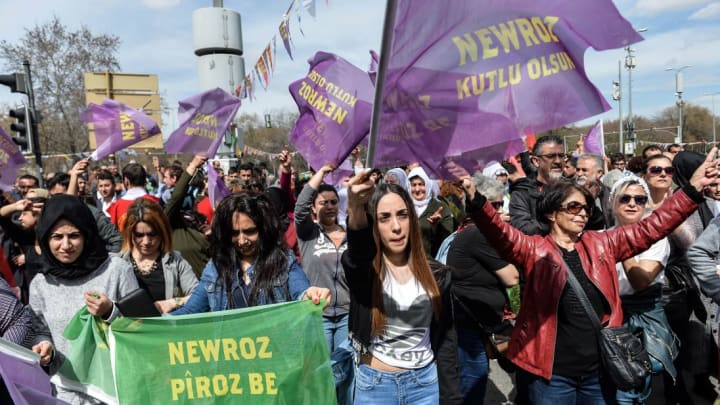Why the Letters Q, W, and X Were Once Illegal in Turkey
By Lucas Reilly

In 2007, the mayor of a city in southeastern Turkey mailed cards wishing his citizens a Happy "Nowruz," the Persian New Year. Shortly after, charges were made against the mayor … for having used an illegal letter of the alphabet.
The mayor had broken what was colloquially called the "alphabet law." Back in 1928, Turkey changed its alphabet from an Arabic-based system to a Roman one—and while the change was considered a major step in modernizing the country, the law came packaged with an unusual caveat: The letters Q, W, and X were forbidden. (In the Turkish language, the legal spelling of the Persian festival was "Nevruz.")
The charges against the mayor were eventually dropped, but others haven't been so lucky. Two years earlier, 20 people were fined 100 lira for making the same mistake. In the London Review of Books, Yasmine Seale explains why the law was created in the first place:
"Romanisation, it was argued, would help standardise Turkish spelling, improve literacy, and allow for cheaper and more convenient printing (the Arabic script required more than 400 pieces of type). But the reform had other, political aims: imposing cultural homogeneity and assimilating Turkey's minorities. New characters were added to the alphabet to accommodate Turkish phonology—ğ, ı, ü, ş—while others were left out. By adhering so closely to the specifics of Turkish and outlawing all other Latin characters (and all other scripts), it effectively proscribed written expression in any language other than Turkish—not least Kurdish."
Kurdish people compose about 20 percent of Turkey's population, and letters such as Q, W, and X are commonly used in their own language. As Mark Liberman writes at Slate, "restricting a minority language … is one way to oppress a minority." (In fact, it was technically illegal to speak Kurdish in public until the 1990s.)
Kurds bore the brunt of the alphabet law: Any Kurdish person whose name contained a Q, W, or X, for example, could not have those letters included on his or her official ID card. For everybody else, the law was loosely enforced. Visitors to Istanbul surely noted giant billboards advertising Xerox copiers or bathroom doors in tourist areas stamped with the letters "W.C." "Turks have long flouted the ban because, even though these letters are not used in traditional Turkish words, they are common in words loaned from English and other languages," Dalia Mortada reported for P.R.I.
But finally, on September 30, 2013, the letters Q, W, and X were legalized, though they were not added to the Turkish alphabet. In the meantime, the Turkish government has found new excuses to litigate against its mayors: In 2015 the mayor of Ankara was sued after he used public funds to build a giant statue of a robot. (It was later replaced … with a dinosaur.)